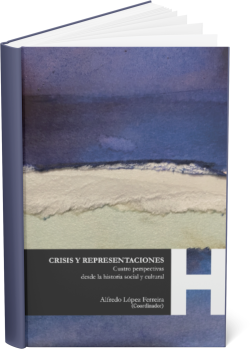CRISES AND REPRESENTATIONS: Four perspectives from social and cultural history
Synopsis
There are many ways in which history has faced and continues to face the old purpose of having a rational and objective understanding of a changing reality. After the great postmodern dispute over the relativization of discourses and in the face of the increasingly overwhelming wave of fake news and clearly biased texts, the work of the historian takes on new relevance. For while we have recognized the impossibility and authoritarianism of aspiring to absolute truths, we have also maintained the possibilities of what Paul Ricoeur called an “equitable history”.
Ricoeur called an “equitable history” or a “just history,” one that would recognize the oversights that traditional history does not acknowledge, through new perspectives such as the history of gender or of subaltern groups, without losing the possibility of finding at least relative truths.
The four essays gathered in this book are the result of the work carried out in the different lines of research of the Academic Body of the History of Culture, Society and Institutions in Mexico, coordinated by Dr. Alfredo López Ferreira, a consolidated body in a process of renewal that has allowed the search for new perspectives and questions about our past. The prisms used here to analyze the experiences of the past are representations, crisis and violence.
Chapters
-
Prologue
-
CHAPTER 1.THE CASTE PAINTINGS. NEW READING POSSIBILITIES
-
CHAPTER 2IMAGES AND FAMILY HISTORY. LUNA'S PHOTOGRAPHIC STUDIO IN AGUASCALIENTES, SECOND HALF OF THE 20TH CENTURY.
-
CHAPTER 3CRISIS AND FRAGMENTATION OF LARGE RURAL PROPERTIES IN AGUASCALIENTES DURING THE TWENTIETH CENTURY
-
CHAPTER 4CONSIDERATIONS FOR THE STUDY OF VIOLENCE IN THE CONTEXT OF THE PHENOMENON OF PIRACY IN THE GULF-CARIBBEAN, 16TH AND 17TH CENTURIES

Downloads
Published
Series
Categories
License

This work is licensed under a Creative Commons Attribution-ShareAlike 4.0 International License.













